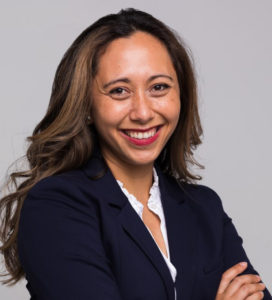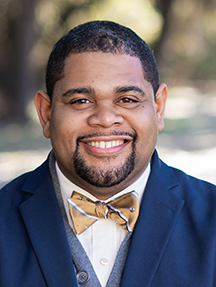• Terrence Wilson, J.D., & Mikayla Arciaga, M.A.Ed. • IDRA Newsletter • November-December 2021 •

 IDRA works throughout the U.S. South to achieve education equity for every child through strong public schools. Building on the long history of policy advocacy and community engagement, IDRA’s Southern Education Equity Network will train and assist communities in improving education policy and practice across the South. Georgia is our next expansion state for this network to connect communities of students, parents, caregivers and educators to promote the following policies and recommendations in Georgia.
IDRA works throughout the U.S. South to achieve education equity for every child through strong public schools. Building on the long history of policy advocacy and community engagement, IDRA’s Southern Education Equity Network will train and assist communities in improving education policy and practice across the South. Georgia is our next expansion state for this network to connect communities of students, parents, caregivers and educators to promote the following policies and recommendations in Georgia.
Provide Fair and Full Funding for Public Schools
Since Georgia’s passage of the Quality Basic Education Act in 1985, public education has been subject to hundreds of millions of dollars in budget cuts nearly every year. Every public school should have the resources to provide high quality education to students. To accomplish this goal, Georgia legislators should adopt the following policies.
- Commission a long-overdue comprehensive study of education to understand the needs of a diverse Georgia student population. If a cost study cannot be commissioned, leaders should adopt student-based funding recommendations made under former Governor Nathan Deal’s Education Reform Commission (Knapp, 2015).
- Protect the state budget from continuous cuts, identify additional sources of tax revenue that may fund public schools and establish new funding streams to alleviate property tax pressures and disparities. Since 2003, Georgia has underfunded education by over $10 billion (Owens, 2021).
- Update the funding formula weights to provide additional funding for students who come from families with limited economic resources. Georgia is one of only eight states that fail to provide such additional funding (McKillip & Farrie, 2019).
- Fully fund categorical and other non-QBE (Quality Basic Education) grants, such as sparsity grants that support rural districts and communities with lower wealth. Rural districts in Georgia face additional challenges for educating their students. Georgia is ranked in the bottom 10 for rural student achievement and has one of the lowest rates of per pupil spending in rural districts (Showalter, et al., 2019).
- Repeal current voucher programs and reinvest those funds into public schools to ensure that the needs of all students, particularly students with disabilities, can be met. Georgia uses vouchers to divert public money into privately-run programs that have less accountability and oversight than public schools.
- Require public participation in school budget planning processes. In order to receive federal funding over the past year, state education leaders were required to solicit feedback for how public money should be invested in education and take that input into account (U.S. Department of Education, 2021).
Since Georgia’s passage of the Quality Basic Education Act in 1985, the public education system has been subject to hundreds of millions of dollars in budget cuts nearly every year. Every public school should have the resources to provide high quality education to students.
Create Safe Schools and Culturally-Sustaining Educational Environments
Georgian students should have access to safe and culturally-sustaining environments. Georgian legislators can facilitate these environments by focusing on the resources and support that protect and sustain students’ racial and cultural identities.
- Eliminate the state’s reliance on harmful, unnecessary exclusionary discipline practices inside schools and maintain mechanisms to track incidents and their impact on school climate ratings. Students of color, particularly Black students, are disproportionately subjected to exclusionary discipline practices (Craven, 2020).
- Prohibit the use of corporal punishment on any student by repealing GA Code §§ 20-2-730-732. Georgia is in the minority of states that still allow corporal punishment, which has been shown to be harmful and disproportionately applied to students of color and students with disabilities (SPLC & CCRR, 2019; Craven, 2021).
- End the regular presence of police inside schools while also collecting and publishing comprehensive and disaggregated policing data from schools that have a continued police presence. Studies have shown that school police are harmful for student environments and are associated with higher amounts of arrests, suspensions, and expulsions, outcomes borne out disproportionately by Black students (Homer, 2020; Fisher & Hennessy, 2016).
- Ensure school safety and foster positive school climates by providing critical funds for school-based professionals, like counselors and social workers, while expanding implementation of safer research-based programs, such as restorative practices and social-emotional learning programs. The recommended ratio of students-to-counselors is 250:1 (ASCA, 2017), but the current ratio in Georgia is nearly twice that at 480:1. Across the country, 14 million students are in schools with police but no counselor, nurse, psychologist or social worker (Whitaker, et al., 2019).
- Reject any attempts to censor learning for students and instead adopt culturally-sustaining curricula and pedagogical approaches that affirm students. Over the past year, policymakers throughout the South, including Georgia’s own State School Board, have enacted policies aimed at censoring what students can learn and what educators can teach (Wilson, 2021).
Provide Excellent Education for Emergent Bilingual Students
Emergent bilingual students have the civil right to access excellent educational opportunities that ensure English mastery while honoring and supporting their home languages and cultures.
- Celebrate the diversity of languages spoken by Georgia’s students and repeal Georgia’s English-only official language law. According to 2020 U.S. Census data, people of color are among the fastest-growing populations in Georgia, and unsurprisingly Georgia’s English to Speakers of Other Languages (ESOL) program has grown 3.5 times the national average (Owens, 2020).
- Update Georgia statutory language from English learner students to emergent bilingual students. Georgia’s reference to students as English learners and the corresponding program for educating these students as ESOL does not reflect students’ asset-based potential for bilingualism (García, 2021).
- Support paraprofessional pipeline and grow-your-own programs to encourage individuals to become bilingual education teachers in their communities. Analyses of Georgia spending for emergent bilingual student educators shows a lack of full staffing for educators in these positions (Owens, 2020). Georgia legislators should support districts to identify ways to address teacher shortages for emergent bilingual students.
- Expand Georgia’s statewide assessments to be offered in students’ home language. Georgia is one of 19 states that do not provide state assessments in languages other than English (Tabaku, et al., 2018).
- Expand the Georgia Department of Education’s reporting dashboard to include seal of biliteracy attainment and ensure that the seal is accessible to emergent bilingual students. Georgia is one of many states that offer students the seal of biliteracy, but IDRA analysis of seal recipients shows that the seal designation may be inaccessible to emergent bilingual students.
For policy updates and to get involved in our advocacy work, sign up for our email alerts and follow us on social media (www.idra.org).
Resources
American School Counselor Association. (2017). Student-to-School-Counselor Ratio 2016-2017. Factsheet. ASCA.
Craven, M. (June 2021). Stopping Harmful Corporal Punishment Policies in Texas. IDRA.
Craven, M. (September 2020). The Policing of Black People Begins in Schools, IDRA Newsletter.
Fisher, B.W., & Hennessy, E.A. (2016). School Resource Officers and Exclusionary Discipline in U.S. High Schools: A Systematic Review and Meta-analysis, Adolescent Research Review, 217-233.
García, A. (February 2021). Words Matter – The Case for Shifting to “Emergent Bilingual,” IDRA Newsletter.
Homer, E.M. (2020). Police in Schools and Student Arrest Rates Across the United States: Examining Differences by Race, Ethnicity, and Gender, Journal of School Violence, 19(2), 192-204.
Knapp, C. (December 15, 2015). Education Reform Commission – Final Recommendations to Governor Nathan Deal. Education Reform Commission.
McKillip, M., & Farrie, D. (2019). Funding Opportunity: Replacing Georgia’s Early Intervention and Remedial Programs with Funding for Low-Income Students. Education Law Center.
Owens, S. (2020). English Learners Deserve More: An Analysis of Georgia’s Education for Speakers of Other Languages. Georgia Budget & Policy Institute.
Owens, S. (2021). State of Education Funding (2021). Atlanta: Georgia Budget and Policy Institute.
Showalter, D., Hartman, S., Johnson, J., & Klein, B. (2019). Why Rural Matters 2018-2019 The Time is Now. The Rural School and Community Trust.
Southern Poverty Law Center & UCLA Center for Civil Rights Remedies. (June 11, 2019). The Striking Outlier: The Persistent, Painful and Problematic Practice of Corporal Punishment in Schools. Southern Poverty Law Center.
Tabaku, L., Carbuccia-Abbott, M., & Saavedra, E. (2018). Midwest Comprehensive Center Review: State Assessments in Languages Other than English. Midwest Comprehensive Center.
U.S. Department of Education. (2021). American Rescue Plan Act Elementary and Secondary School Emergency Relief Fund. 86 FR 21195, 21195-21207.
Wilson, T. (September 2, 2021). School Censorship Policies Sweep through the South, Knowledge is Power.
Whitaker, A., Torres-Guillén, S., Morton, M., Jordan, H., Coyle, S., Mann, A., & Sun, W. (2019). Cops and No Counselors: How the Lack of School Mental Health Staff is Harming Students. ACLU.
Terrence Wilson, J.D., is IDRA’s regional policy and community engagement director. Comments and questions may be directed to him via email at terrence.wilson@idra.org. Mikayla Arciaga, M.A.Ed., is an IDRA Education Policy Fellow. Comments and questions may be directed to her via e-mail at mikayla.arciaga@idra.org.
[©2021, IDRA. This article originally appeared in the November-December 2021 IDRA Newsletter by the Intercultural Development Research Association. Permission to reproduce this article is granted provided the article is reprinted in its entirety and proper credit is given to IDRA and the author.]


